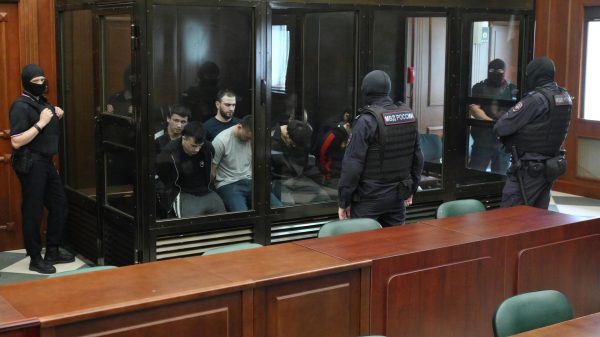 The bill will be one of the first major changes to the law under Humza Yousaf's government. Credit: Getty
The bill will be one of the first major changes to the law under Humza Yousaf's government. Credit: Getty
Humza Yousaf&# 39. The government has unveiled plans to introduce an overnight tax for anyone staying in Scotland in tourist accommodation, one of the first major changes to the law.
The levy bill from visitors (Scotland) will give a stay tax on any form of accommodation, including hotels, bed and breakfasts, private rentals and tents or caravans in campsites.
Local authorities will set a fee based on a fixed percentage of the cost of accommodation, however, hotel owners and other suppliers will be required to pay this amount. However, they will pass the cost on to their guests.
SNP ministers pushed for the tax despite objections from 63% of the organizations that took part in public consultations on the plan.
>There were concerns that this would harm the competitiveness of the Scottish tourism industry, give the impression that it an expensive place to visit, and will damage its reputation as a hospitable country.
'ATM for a failed administration'
Craig McKinley, Conservative MP for South Thanet, said: «Tourist taxes are quite common internationally and tend to be set at modest levels to be an annoyance rather than a deterrent, but the new SNP overnight tax shows a desperation to raise a few pounds.
“The warm welcome for which Scotland has long been famous will be the new ATM for a failed administration.
«It sends the wrong signal to tourists, but it will be a benefit to England, Wales and Northern Ireland, but having said that, Labor-run Wales is likely to copy in line with its usual anti-business agenda.»
A Tory source said: «The Scottish government's new tax will force visitors from all over Britain to flock.
«Towns and towns in Scotland deserve top-notch local services, but yet another tax on tourists threatens to do more harm than good .
“SNP must stop attracting tourists to cover a £1bn spending gap.”
Supported by some councils
However, this move was welcomed by the Labor council in Edinburgh, the largest Scottish country. a popular tourist destination where it is estimated that the collection could bring in £15 million a year.
Leader of the SNP council covering the Scottish Highlands, another hugely popular visitor' attraction, also said it plans to introduce a fee.
According to explanatory notes published with the bill, the funds raised will be earmarked for spending on facilities and services that are “primarily intended for or used by persons visiting the territory of the local authority for recreational purposes.”
The tax will also apply to people visiting Scotland on business, or those who already live there but stayed overnight in another part of the country.
Notes to the bill state that cabins on a ferry, cruise ship, or sleeper train will also not be taxed if they are «on a trip with one or more overnight stays.» However, there will be charges for overnight camping at the campsite or for mooring a yacht.
Councils will have the power to make exceptions, but the only specific examples mentioned in the notes were for registered Gypsies. places for travelers or a patient who is forced to stay overnight in a hotel to get an appointment at the hospital.
Moving will create additional resources
Tom Arthur, SNP Minister of State for the Exchequer, argued that the tax would give councils «additional resources to further attract visitors to Scotland.»
Introducing the bill, he said: around the world, and it makes sense for locals to require a small contribution from tourists to help support and sustain the visitor economy.”
The proposals suggest that councils would need to consult with communities, businesses, and tourism organizations in their area before than to impose a fee, and there will be an 18-month delay before it is introduced.
Other tax rates may be set for specific purposes or areas, i.e., for example, Edinburgh City Council may charge a higher fee during the city's summer festivals arts, when hundreds of thousands of visitors come to the Scottish capital.
Councils should also consult on how the funds raised will be spent. Any accommodation provider that fails to pay the tax will face a fine.
























































Свежие комментарии